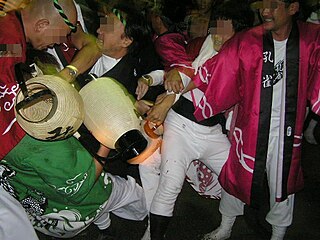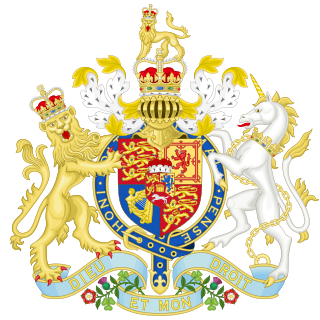
The False Claims Act (FCA) is an American federal law that imposes liability on persons and companies who defraud governmental programs. It is the federal government's primary litigation tool in combating fraud against the government. The law includes a qui tam provision that allows people who are not affiliated with the government, called "relators" under the law, to file actions on behalf of the government. This is informally called "whistleblowing", especially when the relator is employed by the organization accused in the suit. Persons filing actions under the Act stand to receive a portion of any recovered damages.
Perjury is the intentional act of swearing a false oath or falsifying an affirmation to tell the truth, whether spoken or in writing, concerning matters material to an official (federal) proceeding.
A statute of limitations, known in civil law systems as a prescriptive period, is a law passed by a legislative body to set the maximum time after an event within which legal proceedings may be initiated. In most jurisdictions, such periods exist for both criminal law and civil law such as contract law and property law, though often under different names and with varying details.

Defamation is a communication that injures a third party's reputation and causes a legally redressable injury. The precise legal definition of defamation varies from country to country. It is not necessarily restricted to making assertions that are falsifiable, and can extend to concepts that are more abstract than reputation – like dignity and honour. In the English-speaking world, the law of defamation traditionally distinguishes between libel and slander. It is treated as a civil wrong, as a criminal offence, or both.
Nulla poena sine lege is a legal formula which, in its narrow interpretation, states that one can only be punished for doing something if a penalty for this behavior is fixed in criminal law. Variant nullum crimen sine lege establishes that conduct is not criminal if not found among the behavior/cirumstance combinations of a statute. The other interpretations of the formula include the rules prohibiting retroactive criminalization and prescribing laws to be strictly construed.
In common law, a writ of qui tam is a writ through which private individuals who assist a prosecution can receive for themselves all or part of the damages or financial penalties recovered by the government as a result of the prosecution. Its name is an abbreviation of the Latin phrase qui tam pro domino rege quam pro se ipso in hac parte sequitur, meaning "[he] who sues in this matter for the king as well as for himself."

Distraint or distress is "the seizure of someone’s property in order to obtain payment of rent or other money owed", especially in common law countries. Distraint is the act or process "whereby a person, traditionally even without prior court approval, seizes the personal property of another located upon the distrainor's land in satisfaction of a claim, as a pledge for performance of a duty, or in reparation of an injury." Distraint typically involves the seizure of goods (chattels) belonging to the tenant by the landlord to sell the goods for the payment of the rent. In the past, distress was often carried out without court approval. Today, some kind of court action is usually required, the main exception being certain tax authorities – such as HM Revenue and Customs in the United Kingdom and the Internal Revenue Service in the United States – and other agencies that retain the legal power to levy assets without a court order.
An accessory is a person who assists, but does not actually participate, in the commission of a crime. The distinction between an accessory and a principal is a question of fact and degree:
Civil recovery is the method in some legal systems employed to recover the proceeds of crime, instead of, or in addition to, criminal court proceedings.

The Offences against the Person Act 1861 is an Act of the Parliament of the United Kingdom of Great Britain and Ireland. It consolidated provisions related to offences against the person from a number of earlier statutes into a single Act. For the most part these provisions were, according to the draftsman of the Act, incorporated with little or no variation in their phraseology. It is one of a group of Acts sometimes referred to as the Criminal Law Consolidation Acts 1861. It was passed with the object of simplifying the law. It is essentially a revised version of an earlier consolidation act, the Offences Against the Person Act 1828, incorporating subsequent statutes.

Brawling, in law, was the offence of quarrelling, or creating a disturbance in a church or churchyard. Brawling was covered in ecclesiastic courts until 1860. It has rarely been prosecuted since then.

The Act of Uniformity 1548, the Act of Uniformity 1549, the Uniformity Act 1548, or the Act of Equality was an Act of the Parliament of England, passed on 21 January 1549.
Although the legal system of Singapore is a common law system, the criminal law of Singapore is largely statutory in nature and historically derives largely from the Indian penal code. The general principles of criminal law, as well as the elements and penalties of general criminal offences such as assault, criminal intimidation, mischief, grievous hurt, theft, extortion, sex crimes and cheating, are set out in the Singaporean Penal Code. Other serious offences are created by statutes such as the Arms Offences Act, Kidnapping Act, Misuse of Drugs Act and Vandalism Act.

The Penal Code 1871 sets out general principles of the criminal law of Singapore, as well as the elements and penalties of general criminal offences such as assault, criminal intimidation, mischief, grievous hurt, theft, extortion, sex crimes and cheating. The Penal Code does not define and list exhaustively all the criminal offences applicable in Singapore – a large number of these are created by other statutes such as the Arms Offences Act, Kidnapping Act, Misuse of Drugs Act and Vandalism Act.

The Forgery Act 1861 is an act of the Parliament of the United Kingdom of Great Britain and Ireland. It consolidated provisions related to forgery from a number of earlier statutes into a single Act. For the most part these provisions were, according to the draftsman of the Act, incorporated with little or no variation in their phraseology. It is one of a group of acts sometimes referred to as the Criminal Law Consolidation Acts 1861. It was passed with the object of simplifying the law. It is essentially a revised version of an earlier consolidation act, the Forgery Act 1830, incorporating subsequent statutes.

The Sunday Observance Act 1780 was an Act of the Parliament of Great Britain. Originally eight sections long, only sections 1 to 3 were still in force after the 1960s. These sections prohibited the use of any building or room for public entertainment or debate on a Sunday.

The Unlawful Drilling Act 1819, also known as the Training Prevention Act is an Act of the Parliament of the United Kingdom. It was one of the Six Acts passed after the Peterloo massacre.

The Criminal Law Act 1826 is an Act of the Parliament of the United Kingdom. It was a consolidation Act. It consolidated a large number of Acts relating to criminal procedure. It was due to Sir Robert Peel.

The Remission of Penalties Act 1859 is an Act of the Parliament of the United Kingdom. It allows the Crown to remit penalties for offences that are payable to parties other than the Crown.

The Forgery of Foreign Bills Act 1803 was an Act of the Parliament of the United Kingdom. Prior to its repeal in 2013, it created offences of forgery of foreign instruments in Scotland.










